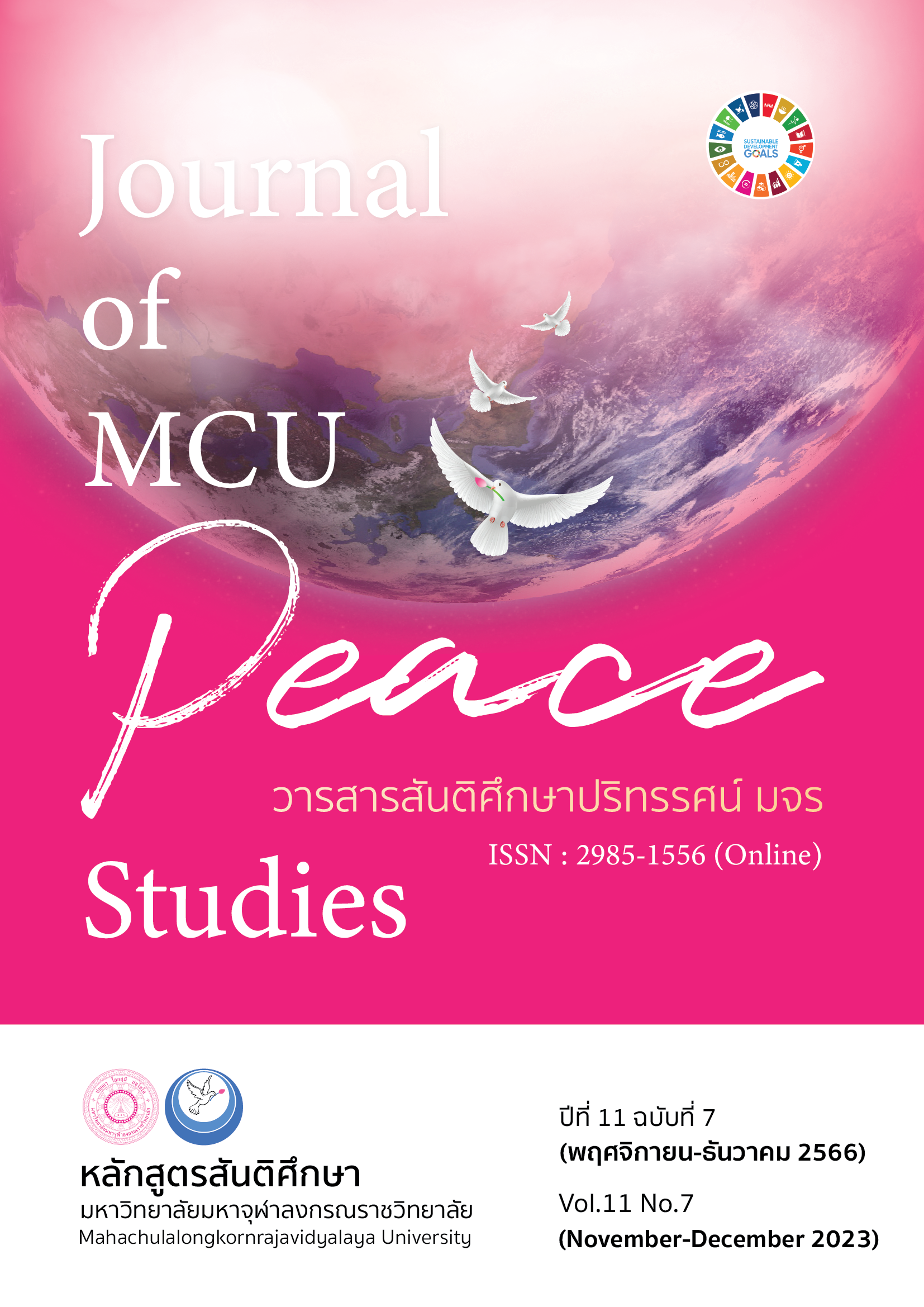การมีส่วนร่วมและผลสัมฤทธิ์ทางการเรียนจากการใช้รูปแบบการเรียนการสอนแบบบูรณาการเชิงรุก เพื่อการมีส่วนร่วมกับชุมชนเกษตรบนระบบเครือข่ายอินเทอร์เน็ต
Main Article Content
บทคัดย่อ
การวิจัยนี้มีวัตถุประสงค์เพื่อศึกษาการมีส่วนร่วมและผลสัมฤทธิ์ทางการเรียน จากการใช้รูปแบบการเรียนการสอนแบบบูรณาการเชิงรุก เพื่อการมีส่วนร่วมกับชุมชนเกษตรบนระบบเครือข่ายอินเทอร์เน็ต เป็นการวิจัยเชิงปฏิบัติการแบบมีส่วนร่วม กลุ่มเป้าหมายนักศึกษาระดับปริญญาตรี จำนวน 73 คนที่เรียนวิชาพื้นฐานเกษตร โดยสร้างบทเรียนแล้วนำไปจัดกระบวนการเรียนการสอนและการจัดกิจกรรมเชิงรุกกับกลุ่มเป้าหมาย เครื่องมือที่ใช้ในการศึกษาได้แก่ แบบประเมินผลการเรียนและการประเมินชิ้นงานของนักศึกษา
จากการศึกษาพบว่า 1) ด้านการมีส่วนร่วมทางการเรียน พบว่าผู้เรียนมีส่วนร่วมในการแลกเปลี่ยนความรู้ระหว่างผู้สอน ผู้เรียน ผู้มีความรู้ด้านการเกษตร (ชุมชนเกษตร) จนนำไปสู่ทักษะการคิดวิเคราะห์เพื่อแก้ไขปัญหาและทำชิ้นงานของตนเองได้สำเร็จ และ 2) ผลสัมฤทธิ์ทางการเรียนพบว่าผลคะแนนหลังจากการเรียนบทเรียนโดยใช้รูปแบบการเรียนการสอน อยู่ในระดับดีมาก และเปรียบเทียบผลการเรียนก่อนและหลังของผู้เรียน คะแนนหลังเรียนมีค่าเฉลี่ยสูงกว่าก่อนเรียนอย่างมีนัยสำคัญทางสถิติที่ระดับ .05
Article Details

อนุญาตภายใต้เงื่อนไข Creative Commons Attribution-NonCommercial-NoDerivatives 4.0 International License.
ทัศนะและความคิดเห็นที่ปรากฏในบทความในวารสาร ถือเป็นความรับผิดชอบของผู้เขียนบทความนั้น และไม่ถือเป็นทัศนะและความรับผิดชอบของกองบรรณาธิการ ยินยอมว่าบทความเป็นลิขสิทธิ์ของวารสาร
เอกสารอ้างอิง
Balkcom, S. (1992). Cooperative Learning. Education Research Consumer Guide 1. Retrieved November 19, 2022, from http://www.ed.gov/pubs/OR/ConsumerGuides/Cooplear.html
Banchusuwan, P. (2018). Active Learning Techniques Raising up the Understanding of Comparative Politics and Democracy. Electronic Journal of Open and Distance Innovative Learning, 8(1), 166-190.
Dueanchaeng, S. (2021). Development of Learning Achievement in the Thai Language Subject by Using Active Learning together with Cooperative Integrated Reading and Composition. Journal of Educational Studies, 15(2), 185-200.
Office of the Education Council. (2018). State of Thai Education in 2016/2017. Bangkok: Office of the Education Council.
Onthanee, A. (2019). The Effectiveness of Participatory Learning to Promote Occupational Competency for Secondary School Students. Journal of Education Naresuan University, 23(2), 336-350.
Pinit, P., & Anmanatrakul, A. (2015). Learning Management Contemplative Education Process Intellectual Studies in Academic Writing. Bangkok: Charansanitwong Printing.
Pornsima, D. (2016). Thai Teachers 4.0. Ministry of Education. Retrieved November 19, 2022, from http://www.moe.go.th/moe/th/news/detail.php?NewsID
Ramrit, T., & Sawadram, C. (2021). Using Google Classroom via Class Management Participation for Learning Achievement of Vector Graphics. Journal of Humanities & Social Sciences, 19(3), 161-178.
Rattanapian, W. (1999). Teaching and Learning Through the Web: A New Alternative to Thai Educational Technology. Journal of Education Studies, 27(3), 29-33.
Sinlarat, P. (2016). Will Raise the Quality of Basic Education in Bangkok. Bangkok: Mac Education.
Srinoun, K., Thanapongpichat, S., Buncherd, H., & Tansila, N. (2021). Achievement and Engagement Behavior using Active Learning in Clinical Hematology Course. Journal of Education and Innovative Learning, 1(1), 37-44.
Surapanyo, C. (2022). Online Active Learning and Teaching for Teacher Education. Ratchaphruek Journal, 20(1), 1-13.
Susaorat, P. (2013). Thinking Development. Bangkok: 9119 Technic Printing Limited Partnership.
Vinitasatitkun, P., & Yaemkwanyuen, C. (2022). Active Learning: Guidelines for Best Practice in the 21st Century. Journal of Educational Innovation and Research, 6(3), 921-933.


